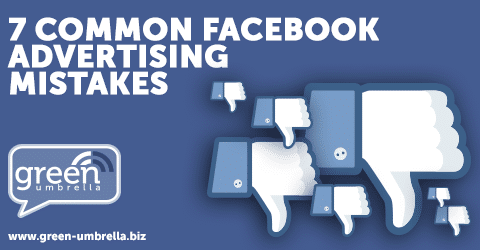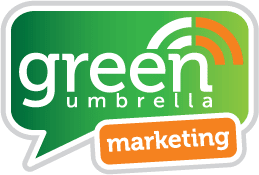Seven Common Facebook Advertising Mistakes

Seven Common Facebook Advertising Mistakes

Facebook advertising works a treat as a cost-effective way to get your brand seen and attract the right visitor traffic to your website. The trick is to make it work for your specific needs. With many options for you to tinker with, it can be tempting to jump in, all guns blazing, trying everything out. But with many complexities to learn about Facebook’s Pay-Per-Click model, patience and testing are a virtue.
Otherwise, you could be wasting your advertising budget or missing out on leads as you discover what does and what doesn’t work in your advertising efforts.
Learn about the seven most common Facebook advertising mistakes, and make sure your campaigns don’t suffer in the same way.
1) No goals? No way!
Your first requirement should be a clear strategy. So ask yourself: do you want more website visitors that can convert into new customers? Do you want to make your name more recognisable? Or are you looking to get more people engaged in your social media activities? Based on your end goal, Facebook can lead you to recommended advertising formats.
2) No campaign landing pages
An advert can only be effective if it converts, i.e. it leads to your required action such as gaining an application, registration or enquiry. That’s why you need to give equal attention to the pages you drive your advert clicks to. Unify the ad’s design with the page and the transition between the two will feel seamless to your prospects.
3) No clear call to action
To make your message a winner, you have to lead to a punch line that compels a response. This means having a strong direct call to action in the main text of your Facebook ad. Rather than the vanilla ‘buy now’ or ‘save now’, you could go for something more creative that will grab attention and intrigue people. A soft sell can sometimes be as effective as a hard sell for services that don’t need to talk up offers. Therefore, consider incorporating emotive language such as ‘love’, ‘dream’ or ‘feel’.
4) Not testing your ad copy or images
In your ad, getting the right proposition across to the right audience is key. To nail down which messages work best, you need to test. Split testing – deploying two variations of an advert with variations in headline and text – is essential as it allows you to increase advert response rates.
And don’t forget to test your imagery too. As the first thing a Facebook user notices, images have impact, and it’s not as easy to gauge which ones will have the most impact unless you test each one.
5) No custom audience campaigns
Facebook Custom Audiences is a powerful campaign tool for targeting your ads. It hooks up to your contacts list, allowing you to direct your advertising to those who already have knowledge and exposure to your brand and offering, and in the process help create sales or responses, reinforce your brand and encourage loyalty. The power comes from being super targeted. You can zero in on specific targets such as those from a specific region or job title. For instance, as a recruitment agency advertising jobs, you could target adverts specifically to people with the right skills, experience or geographical area.
6) No lookalike campaigns
Facebook’s Lookalikes are targets you can reach out to who are very similar to your current contacts or followers. This is great for extending reach; you can choose to make your targeting broad or narrow based on how similar the targets are to your existing contacts list. Statistically, we are getting some of the best results from the lookalike campaigns we run for our recruitment clients, so this approach should be taken seriously.
7) Failing to track successes
Last but not least, tracking, as with testing, should become habitual. After all, if you fail to track your ads, you’ll be kept in the dark about what works and where you should direct your future advertising budget.
There are countless tools on the market for tracking, including the excellent and free Google Analytics. This programme gives you precious insight into how visitors arrive at your website, how to encourage them to return, as well as measuring success and enquiry rates.
Summary
Hopefully, these tips will help you look closely at your Facebook ad campaigns so that you can work on fixing these seven common Facebook advertising mistakes and begin to see significant improvements that drive them forward for greater success.
[social-bio]
Recruitment SEO & PPC Expert | 15+ Yrs Experience Providing Recruitment Online Marketing | UK
Share this!

